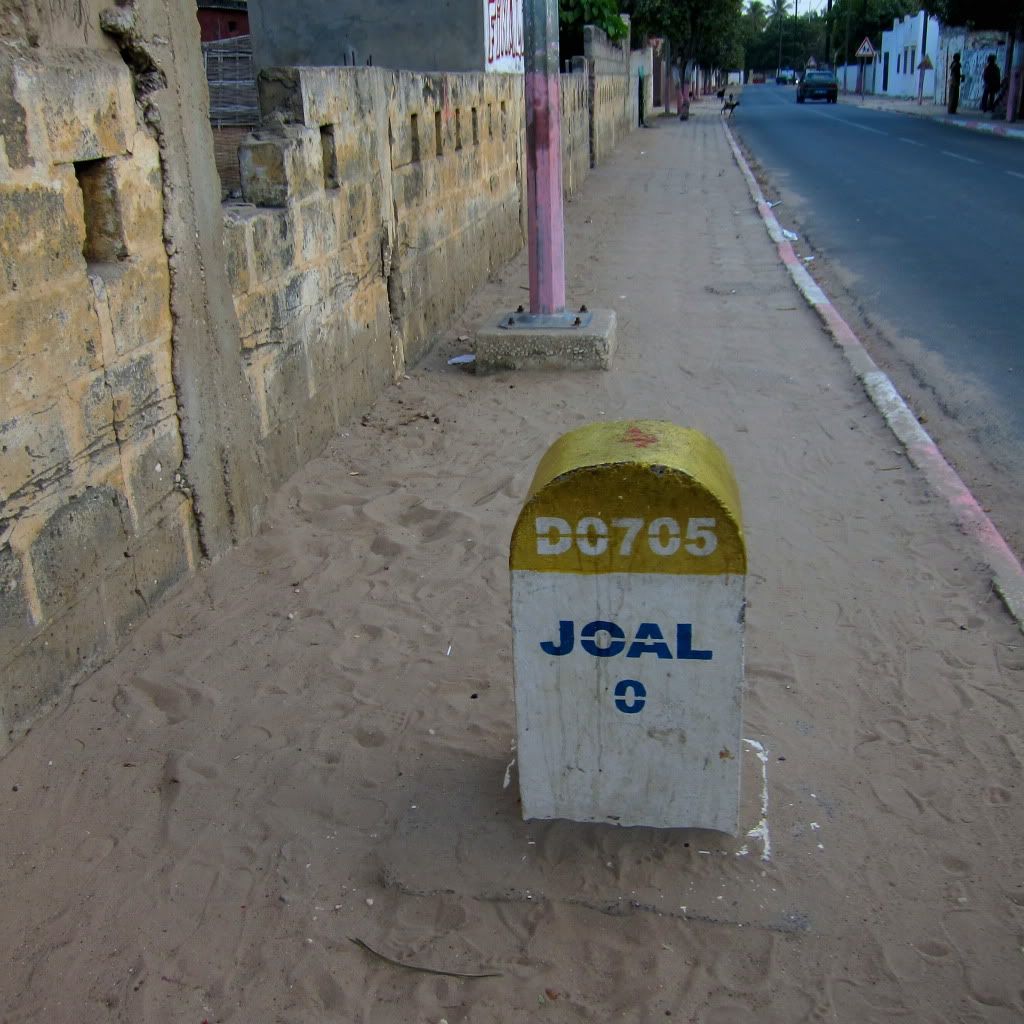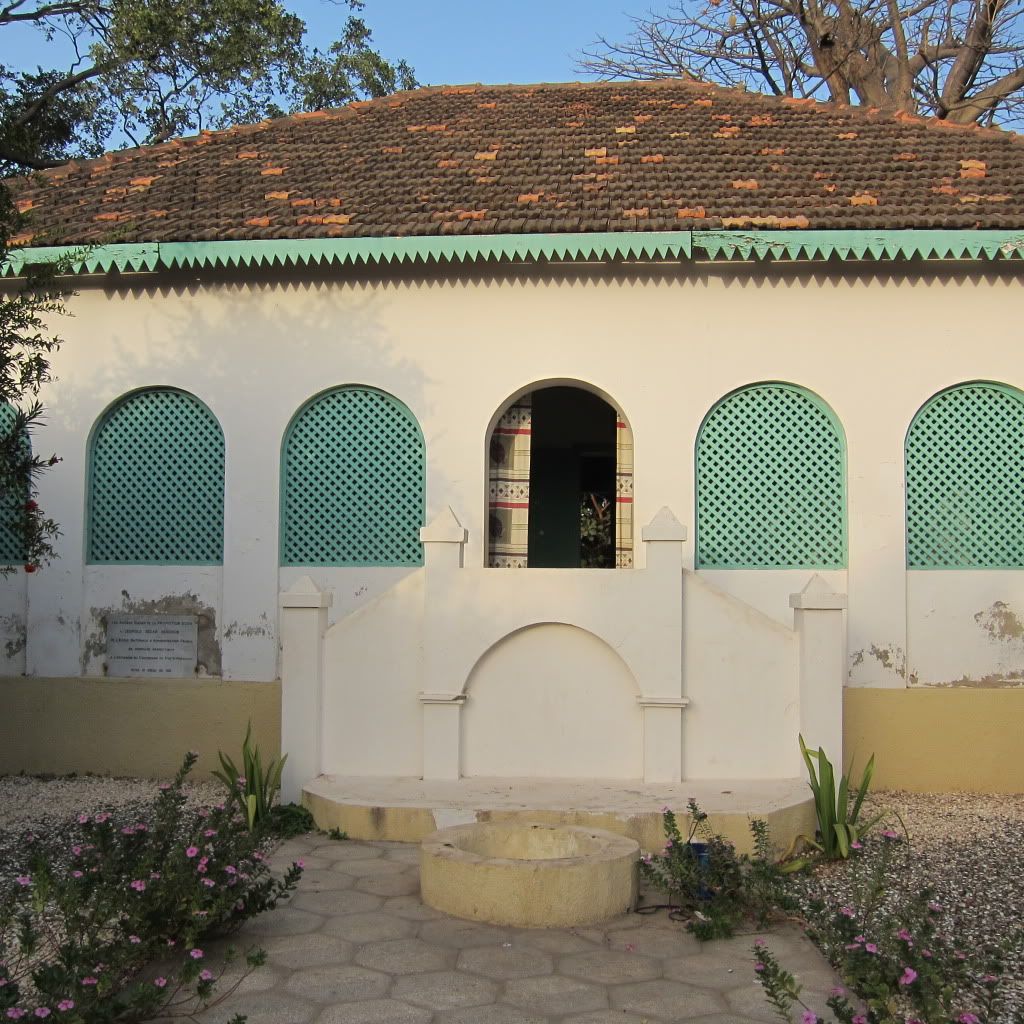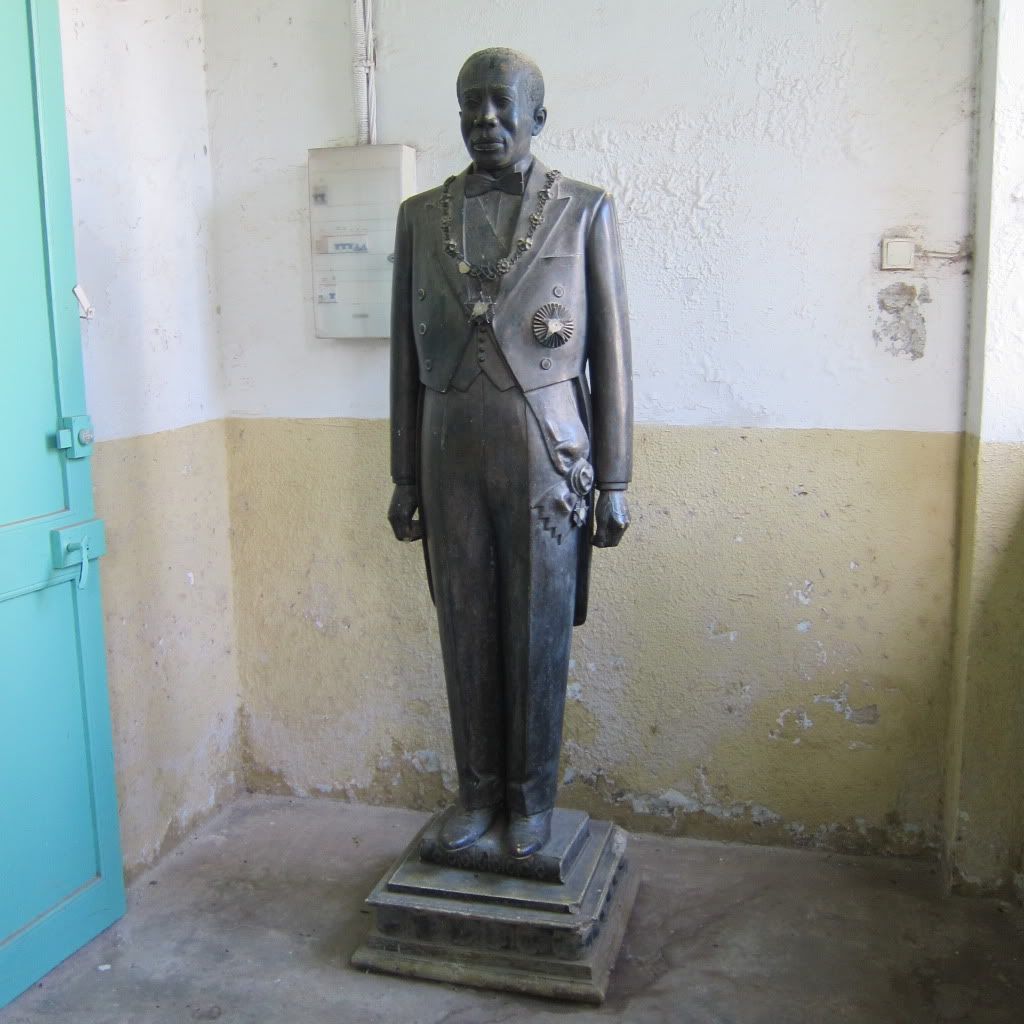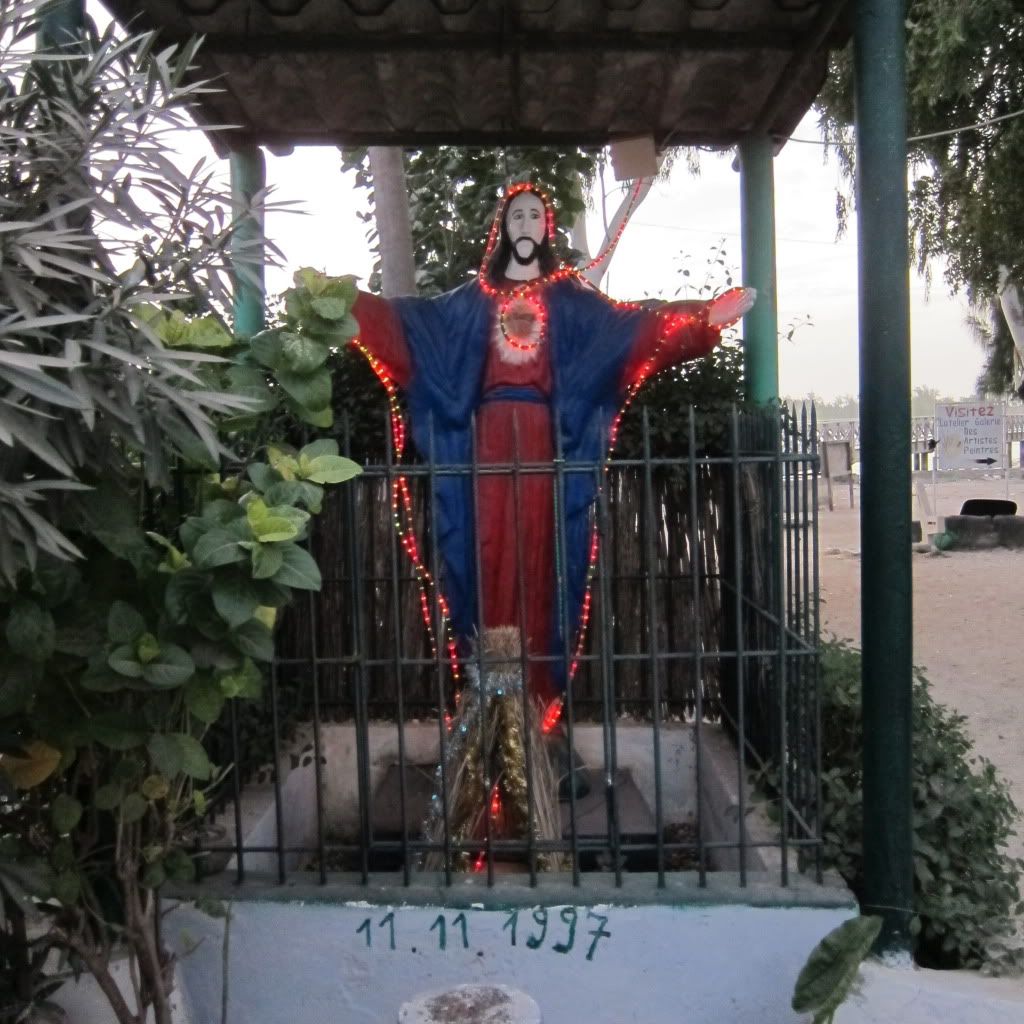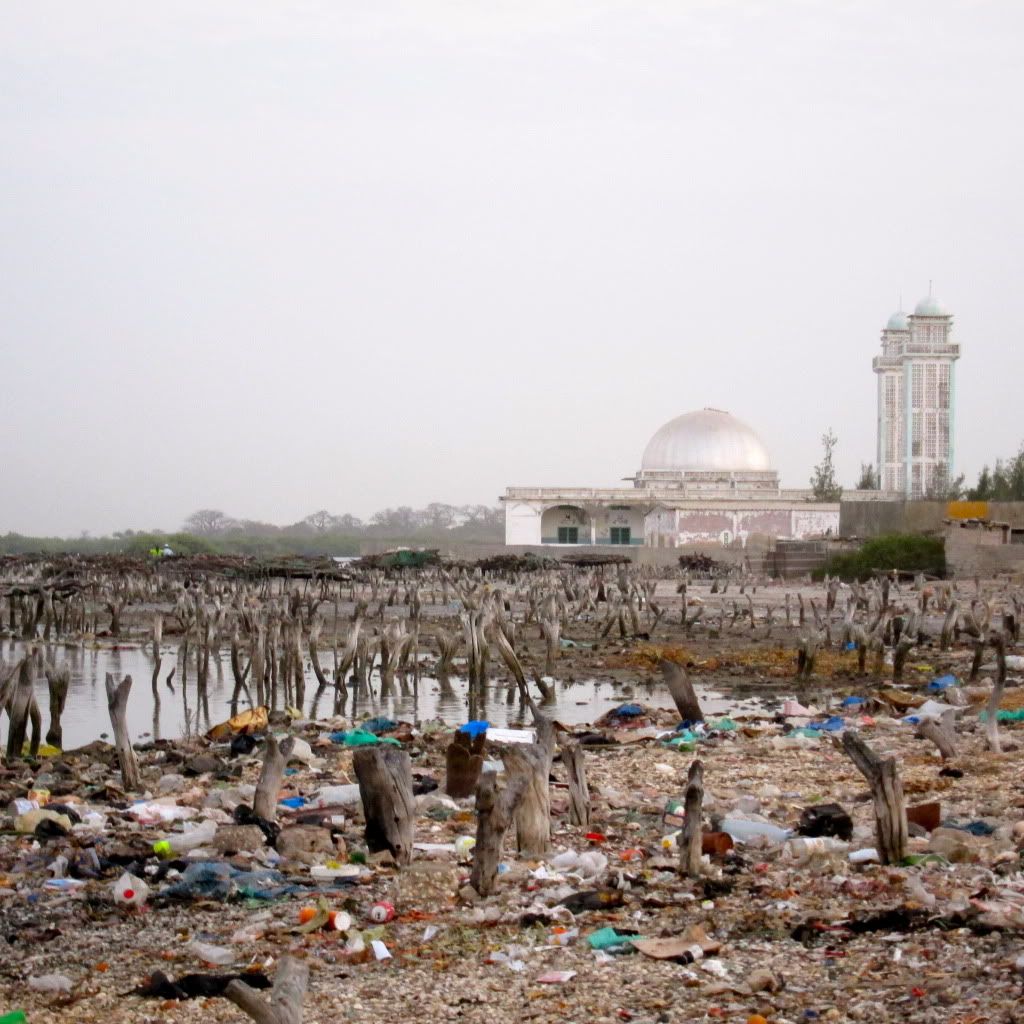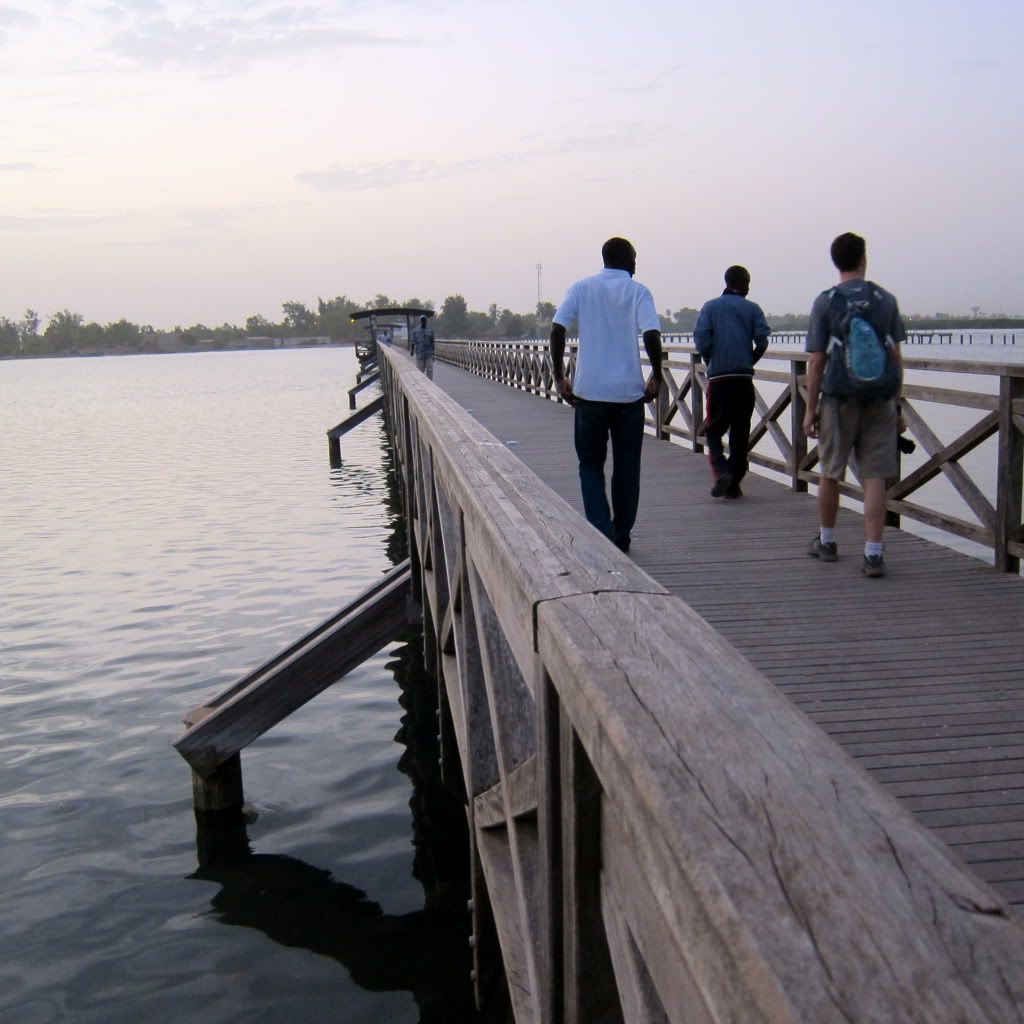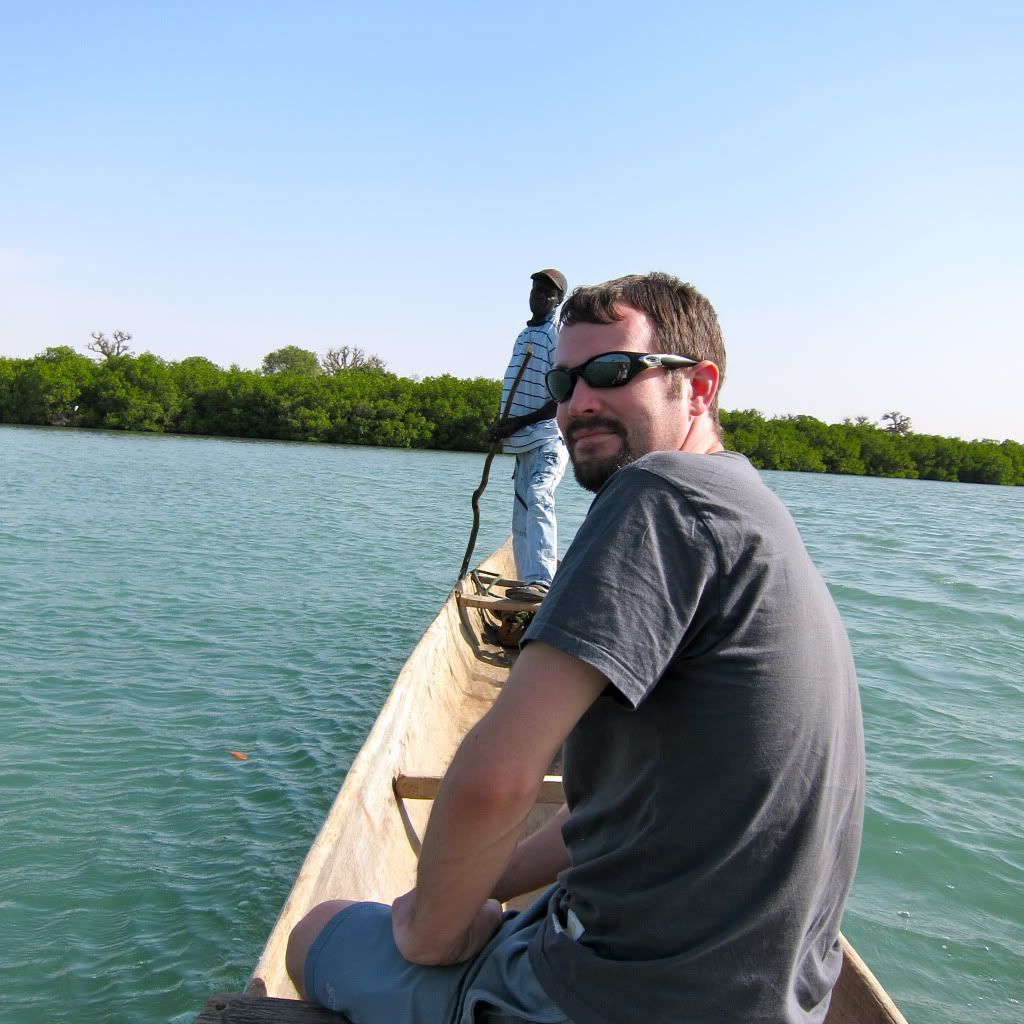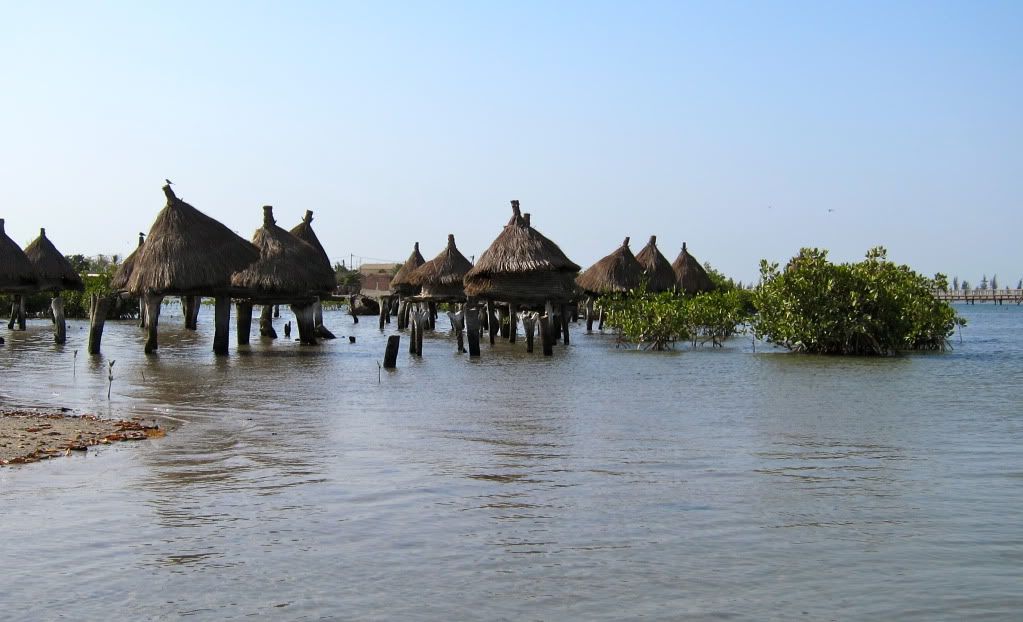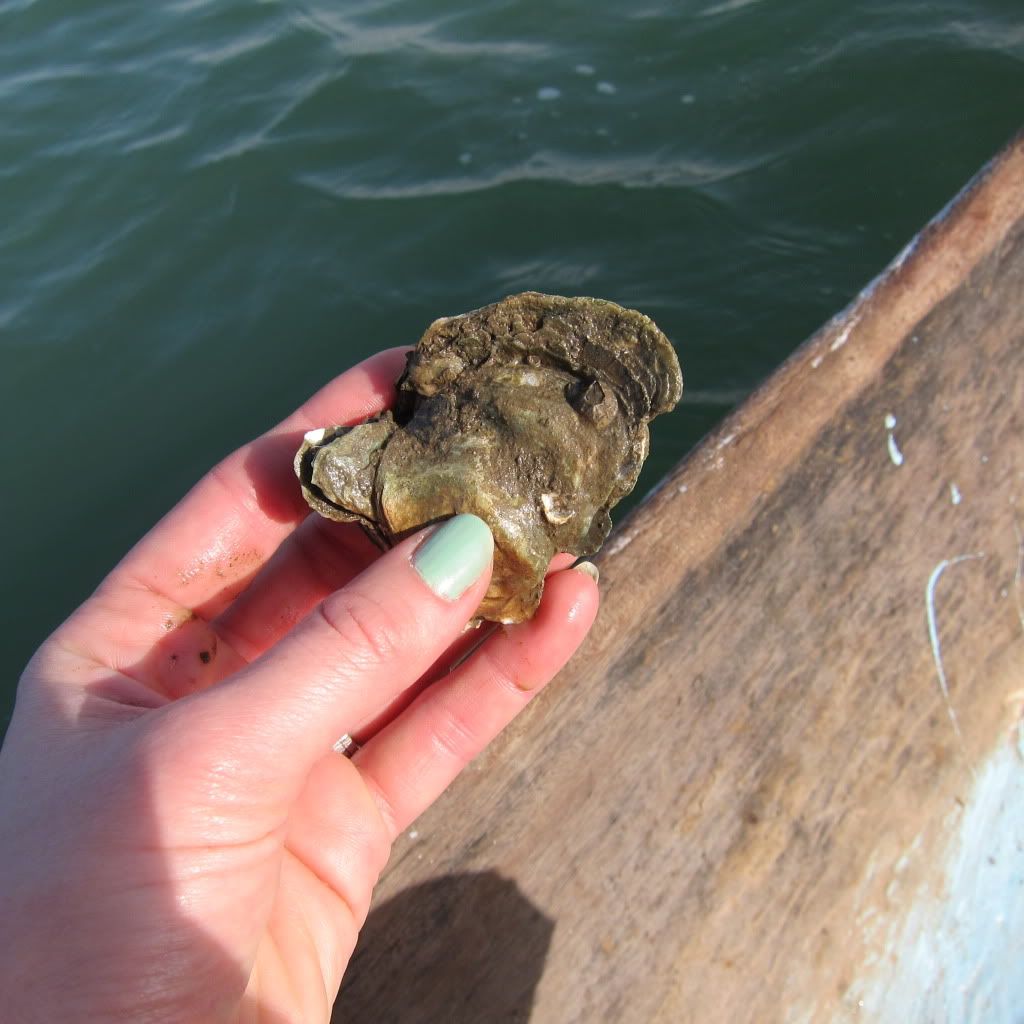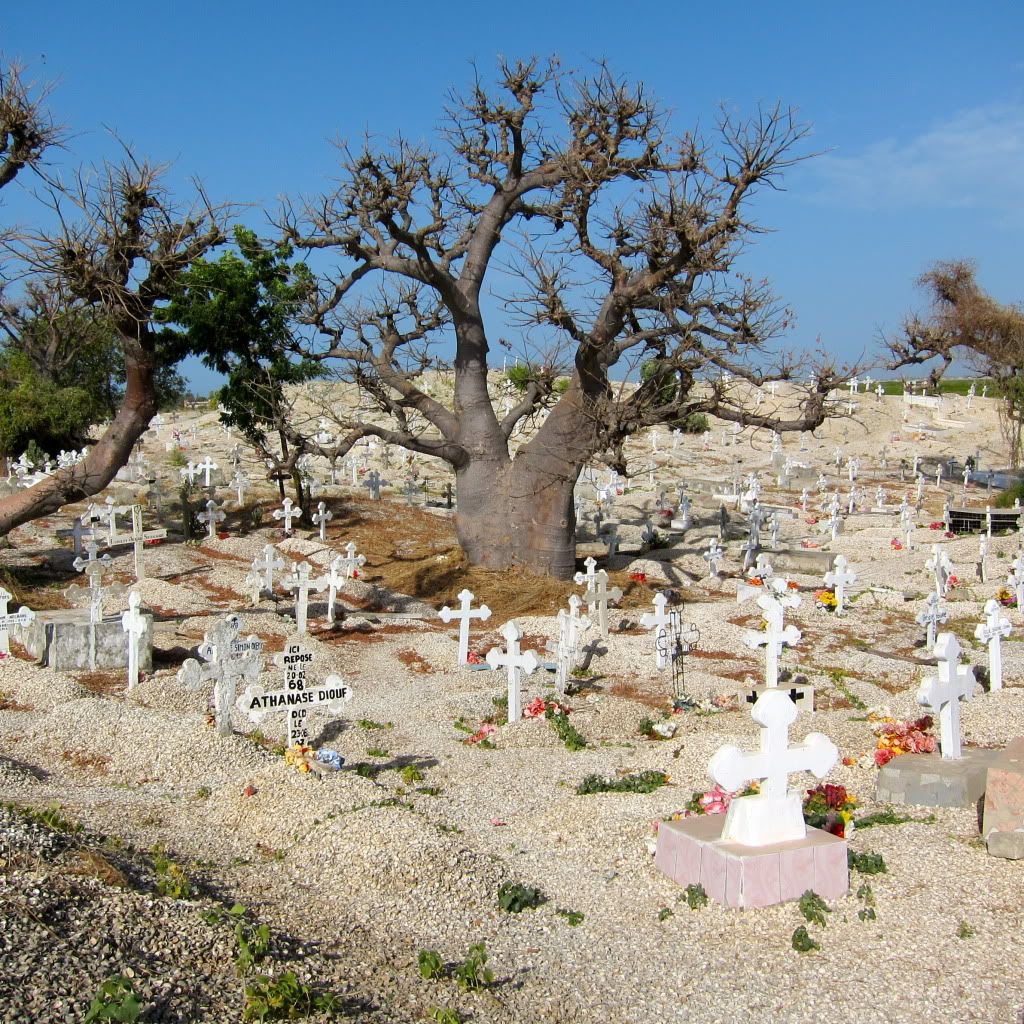Armed with amulets devoted to Priscilla and God, we’re headed to the coast for some inter-faith hospitality.
On my last trip down to Joal-Fadiouth, I came in a bus full of very nice toubabs. We had a very pleasant time sight-seeing and generally not worrying about thinking too hard during the tour. While I wouldn’t label the trip as Tourism Done Through a Plastic Wrap Coating, the lack of autonomy did leave me feeling like I cheated. I’m not a very good group person, and because I actually live in this country, I feel like I should be out here problem solving on the fly. Or at least not taking a tour bus like I’m afraid to get out and get my feet dirty (please note: I do also love the air-conditioned tour bus).
As you know, during this trip my brother is still in town (merci, John Boy for your insightful blog entries). He’s seen the random desert square of Loumpoul, and now I want him to see a bit of the beautiful Petite Côte. Lucky for the both of us, François, a Senegalese friend of mine has a house in Joal, and he has allowed us to stay at his place so we can enjoy an overnight stay in his village.
I’ve done a blog entry on Joal before, but I want to do a second one- especially seeing as how I’m doing some different stuff on this trip.
Armed only with a phone number of the tenants occupying François’s house, we arrive in Joal and I dial the number. In a stroke of incredible luck, two school teachers happen to be renting the house- and one of them is an English teacher (a real boon for my little brother). One of the teachers meets us in town and brings us to the house. In typical Megan fashion, I don’t expect anything more than being shown to our room; I don’t want to impose on these guys any more than we already have on this weekend- a day off for them. Of course, in typical Senegalese fashion, I was going to get far more than what I bargained for.
Ahmade and Ndof (the two teachers) give us a warm welcome before allowing us to get settled in our room. We all chat until lunchtime, and then we are served a delicious meal of fish meatballs with yassa on a bed of rice. Up until this point my brother has not yet eaten à la sénégalaise: the dish is served on a large platter where everyone grabs a big spoon and gathers round to eat out of the communal plate. We pick up our spoons and commence digging into some really good eats. We aren’t a minute into our repast before Ahmade and Ndof both look at my brother as he’s negotiating his wedge of the bowl. “You’re left-handed!” they note. John’s the only one holding his sppon with his left hand, and apparently this kind of behavior is discouraged from an early age. Goofy goalie.
After lunch, we are served up some freshly=brewed attaya and then all settle in for a nice afternoon nap. Once the sun gets lower in the sky, Ahmade and Ndof are going to give us a tour of Joal-Fadiouth. The first stop? A place that I have been wanting to visit for awhile: Mbind Diogoye, the birthplace of Léopold Sédar Senghor. Apparently François called ahead and let them know what to show us.
Senghor wasn’t only the first president of Senegal, but he was also a poet and man of undeniable brilliance. What I really wanna tell you isn’t about how he had 41 siblings, or that his dad was Catholic but had multiple wives- but rather how he was the first African elected as a member of the Académie française. I learned so much on this tour that I felt like I had just arrived in Senegal and was getting a crash course in stuff I already should have already known.
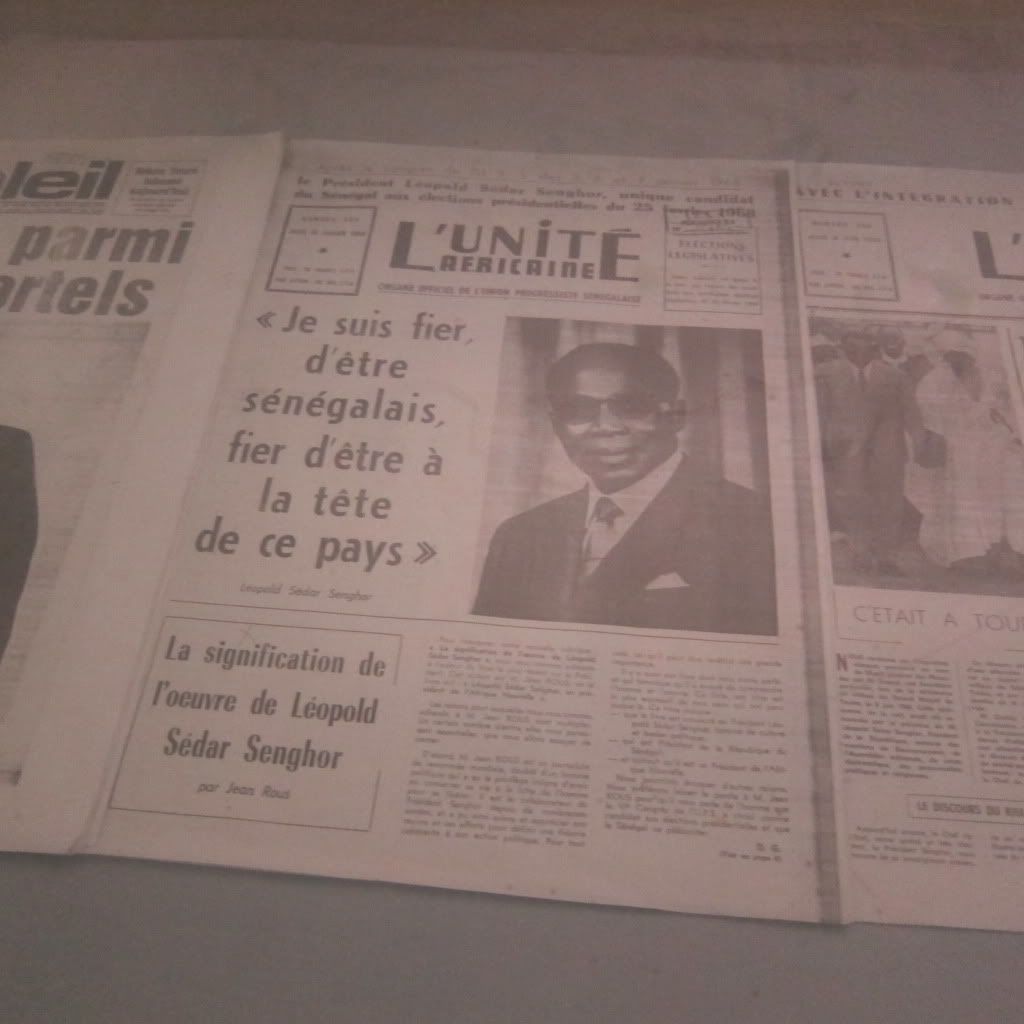
“I am proud to be Senegalese, proud to be the head of this country.” Understandably, Joal is very proud to call him one of its own.

“I am proud to be Senegalese, proud to be the head of this country.” Understandably, Joal is very proud to call him one of its own.
After visiting Senghor’s house, we stop in to say hello to the family of François. While walking through the village, we see a fighter getting ready for a wrestling match- la lutte is a big deal here in Senegal- and the sport has origins with the Serer people- an ethnicity that is numerous in these parts. It’s cool to walk around and see what everyday people are up to around the village.
From Joal we head on to the island of Fadiouth- an island made of shells that is home to many Catholics (and pigs!).
I didn’t see this on the last tour I took, but Ahmade and Ndof bring us to what they deemed the “less beautiful” part of the island. John and I are happy to see life for what it is (hey, every town has its unsightly parts), and from here we got a glimpse of the town’s big mosque.
As I mentioned, there’s a big lutte going on in Joal right now, and even from the island of Fadiouth we can hear the excitement of cheers and drums echoing across the water.
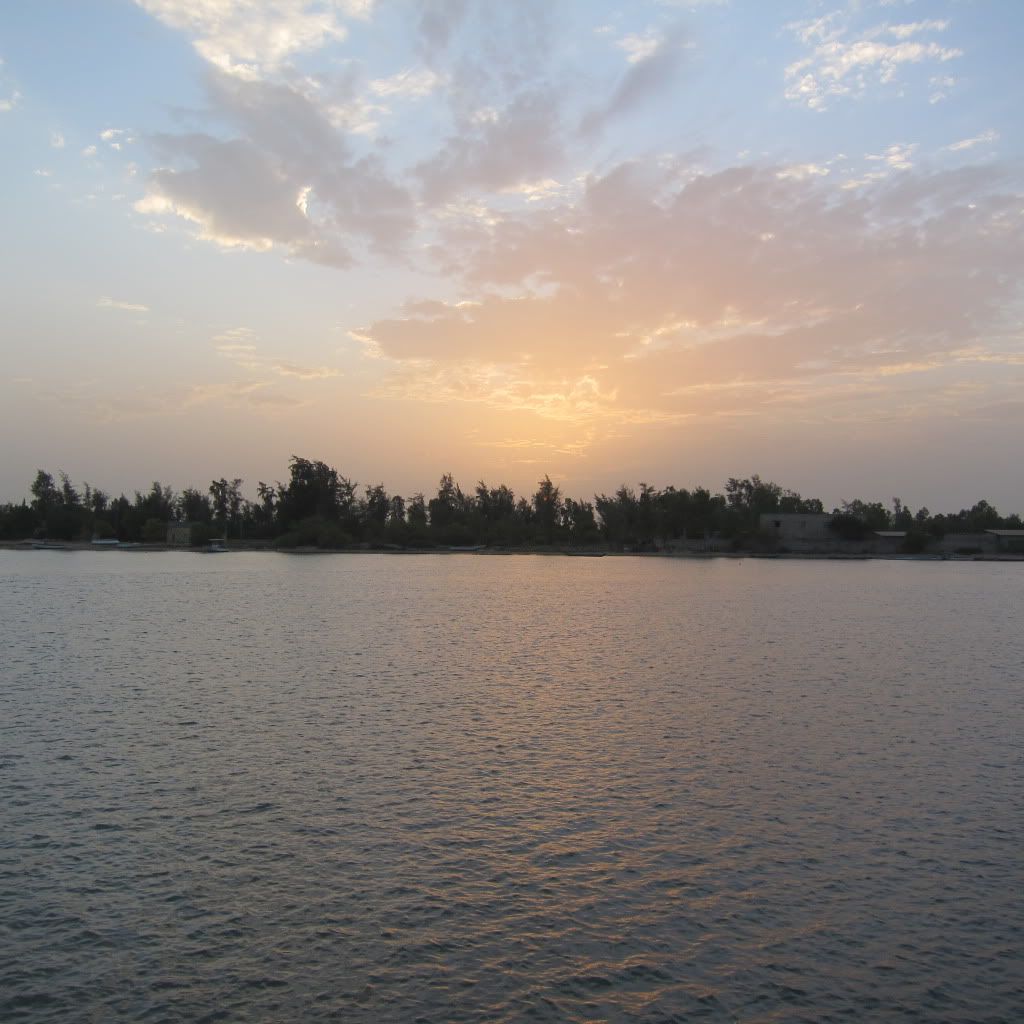
And lest you are left to imagine that the low tide of garbage is all that comprises Fadiouth, I will tell you that this place made me want to move down here and just enjoy life by the sea with the fisherman. Besides, Pastis is a popoular drink down here!
That evening we sit around and chat over some a simple Sunday night supper. Even though John and I didn’t know these guys five hours ago- and there is a small bit of language barrier- I’m as comfortable as if I were back at home watching TV with my own family. They again serve as much food as we can handle, and then we chat about life, religion and American television. John’s got the upper hand in this conversation since he knows more about current American TV than me- and Ahmade is more than current on the latest shows. As for myself, I’m happy to sit back and relax into this evening. Joal has a fantastic pace.
The following morning, John and I get up early so we can head back out to Fadiouth and take a pirogue ride among the mangroves. I did this the last time I visited, and thought he’d enjoy the experience as well. We’re the first toubabs down to the island, and we quickly hop into a boat for a peaceful tour with very little commentary. So nice to be out of Dakar.
A passing view of the old millet granaries.
And here we have the mixed religion cemetery on an adjacent island of shells. This place is especially cool because you’ve got both Muslims and Christians buried here. I remember when I first arrived in Senegal, I was having a conversation with François about religion- I was asking all kinds of questions about the seemingly inherent tensions between Islam and Christianity, and finally he said something to the effect of: “You Westerners- you like to complicate everything!” He was right- and I maintain that Senegal serves as an enduring example of peaceful religious coexistence. World, are you paying attention?
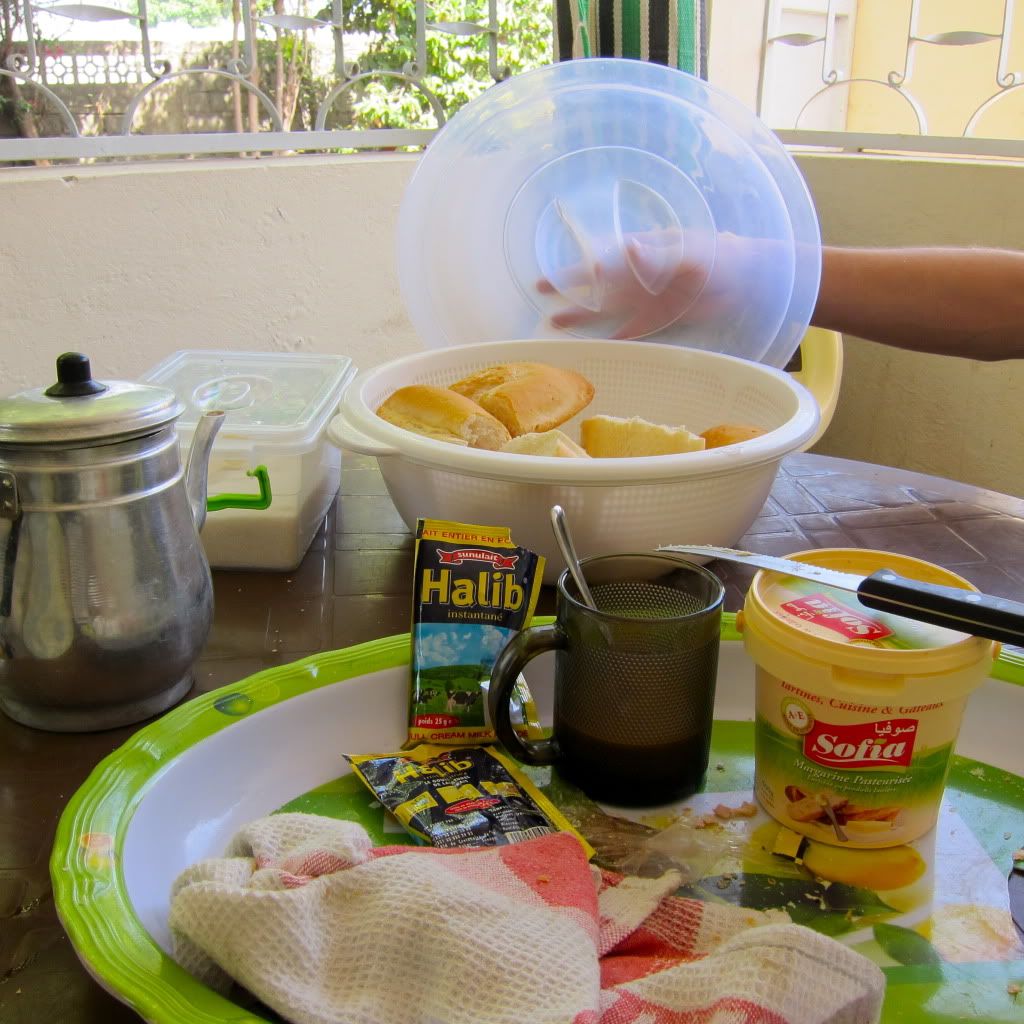
After the pirogue ride we head back to the house and get ready to head back to Dakar. Our little trip outside of that crazy peninsula is coming to an end. As we get to the house, Ndof pops up and kindly scolds us for not having taken breakfast before we left (we kind of overslept and were running late). He doesn’t hesitate and goes to ask the maid to bring us out some breakfast. And with this gesture we have yet again an example of the boundless generosity that seems to be built into the genetic structure of the Senegalese people. I arrived in Joal expecting nothing more than a bed with a mattress- but we got so much more than we would have imagined.

After the pirogue ride we head back to the house and get ready to head back to Dakar. Our little trip outside of that crazy peninsula is coming to an end. As we get to the house, Ndof pops up and kindly scolds us for not having taken breakfast before we left (we kind of overslept and were running late). He doesn’t hesitate and goes to ask the maid to bring us out some breakfast. And with this gesture we have yet again an example of the boundless generosity that seems to be built into the genetic structure of the Senegalese people. I arrived in Joal expecting nothing more than a bed with a mattress- but we got so much more than we would have imagined.
I think that this entry has gone on long enough, but I just want to extend another thank you to François, Ahmade and Ndof for making this short visit so memorable. In bringing John out to Senegal, I really wanted him to experience some of the world famous teranga (hospitality) that Senegal is known for, but I also didn’t want him to experience this in some kind of bullshit Hawaiian mass-audience luau forum that is far from genuine. Real teranga is something that you stumble upon- something that catches you off-guard when you are having a bad day and leaves you feeling speechless with gratitude and appreciation. It’s the reason why I know that I will have a hard time leaving this country in a few months’ time.
I can only hope that John felt the same.

